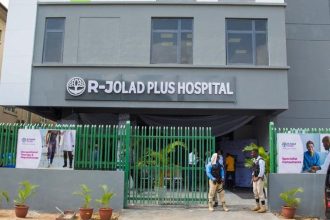At least 50,000 Nigerians have tested positive for tuberculosis following intensified national screening campaigns, the Global Fund has revealed.
However, a significant number of those diagnosed have not yet commenced treatment, raising serious concerns about Nigeria’s capacity to contain further transmission of the disease.
This was disclosed by Mr. Ibrahim Tajudeen, Executive Secretary of the Global Fund Country Coordinating Mechanism in Nigeria, during the 11th quarterly meeting of the Ministerial Oversight Committee for the Basic Health Care Provision Fund, held Monday in Abuja.
Tajudeen attributed the surge in case detection to enhanced TB screening efforts carried out by the Nigerian government in collaboration with international donors.
“We have successfully screened more than 50,000 people who are TB-positive, but we are unable to begin treatment for many due to limited resources,” he said.
Despite the progress in identification, Tajudeen warned that financial constraints under the current grant cycle could jeopardize ongoing efforts to manage the disease.
“The Country Coordinating Mechanism (CCM) is expected to confirm its alignment with the revised funding allocation by July 14, a deadline that may determine whether those affected could access life-saving treatment in time,” he added.
He described tuberculosis—an infectious disease that is both preventable and curable—as one of the most serious public health threats Nigeria faces. While efforts to tackle the disease continue, a lack of adequate funding could reverse recent gains.
Tajudeen also provided updates on other health sector interventions made possible through donor partnerships.
“More than 25.5 million tuberculosis tests have been conducted using modern diagnostic platforms. A total of 370 digital X-ray machines have been procured, with some already delivered to various states. The upgrade of six regional reference laboratories is currently underway,” he noted.
The briefing also highlighted efforts in malaria prevention, with 16.6 million insecticide-treated mosquito nets distributed nationwide. These initiatives have been backed by a $95.5 million commitment from development partners.
However, Tajudeen noted that financial challenges have already forced the suspension of several critical health programs, including the procurement of essential medicines, training for healthcare workers, and infrastructure improvements.
He called on members of the Ministerial Oversight Committee and other stakeholders to take urgent action to prevent the situation from worsening.
“Screening alone is not enough; without treatment, we risk fuelling the very epidemic we seek to control,” he warned.
According to the News Agency of Nigeria, the country remains one of the highest TB-burdened nations globally. Health experts continue to call for a unified approach and sustainable funding to bridge care gaps and reduce transmission risks.
The Global Fund, a major supporter of Nigeria’s health system, has contributed significantly to the fight against HIV, TB, and malaria. Its support includes providing medicines, diagnostics, mosquito nets, medical infrastructure, and alternative power solutions such as solar energy for health facilities.
Through close collaboration with government bodies and global partners, the Global Fund remains a cornerstone in Nigeria’s quest to strengthen health outcomes and combat infectious diseases.











